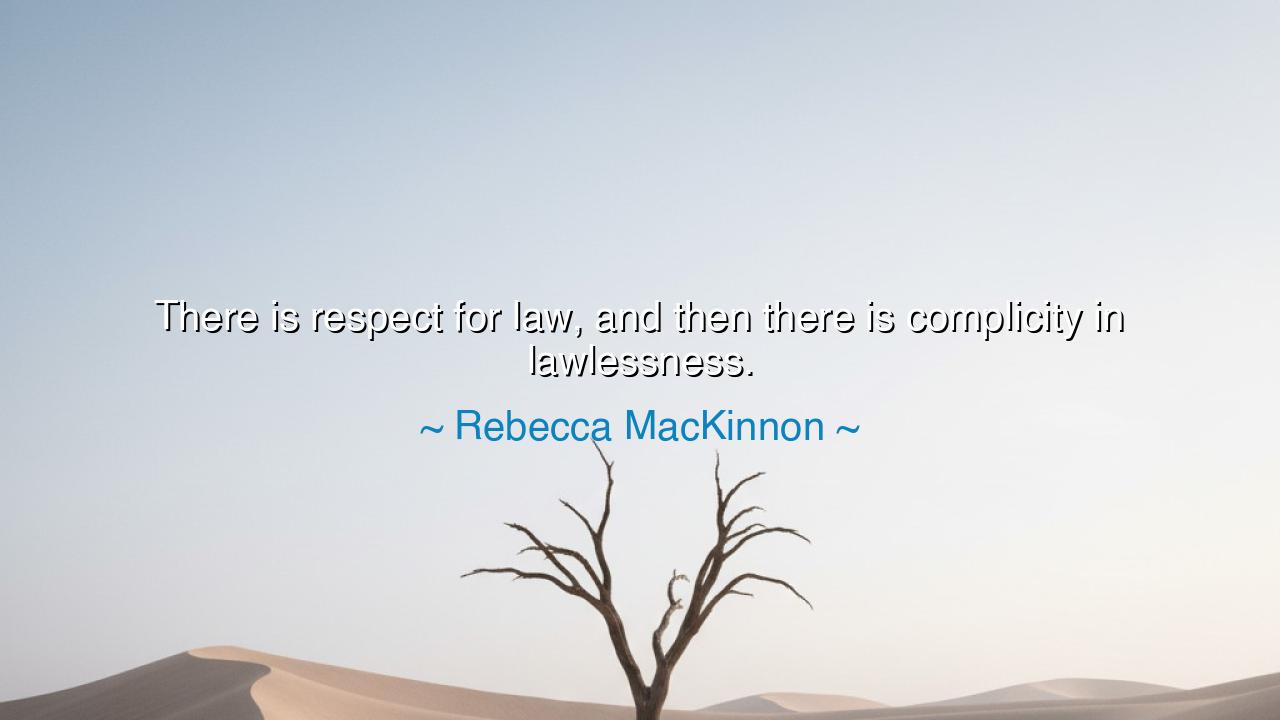
There is respect for law, and then there is complicity in






"There is respect for law, and then there is complicity in lawlessness." Thus speaks Rebecca MacKinnon, and in her words is a teaching both subtle and mighty. For the law is not always a pure spring from which justice flows. At times, it is a vessel cracked and corrupted, carrying not the water of righteousness but the poison of oppression. To honor law blindly is not always virtue; it may become the snare by which men are bound to injustice. Yet to resist such corruption, to discern the spirit behind the letter, is the task of those who would walk in truth.
The ancients knew this well. For even in the proud city of Athens, Socrates drank the cup of hemlock not because he defied justice, but because he bowed to the form of law while questioning its heart. And though he died, his sacrifice exposed a truth: that law, when severed from justice, becomes an idol. To worship it unthinkingly is to give reverence not to order, but to tyranny cloaked in order’s name. Thus we see that there is a line, fine yet eternal, between respect and complicity.
Consider the tale of Nazi Germany, where many obeyed the law while turning their faces away from the cries of their neighbors. The statutes were stamped with authority, the courts pronounced judgment with solemn voice, yet what was enshrined was lawlessness, dressed in the garments of legality. Those who claimed they were merely respecting law were, in truth, accomplices to cruelty. Here lies the warning: the law can be the sword of the oppressor if not tested by the light of conscience.
But there are also those who showed us another path. Recall Rosa Parks, who in quiet dignity refused to yield her seat upon the bus. By the letter of the law, she was disobedient; yet by the spirit of justice, she was radiant. Her act was not complicity in the lawlessness of segregation but a rebuke against it. Through her defiance, the higher law—the law of human dignity—was revealed. Thus the paradox stands: sometimes to respect law truly, one must break it when it has ceased to serve the people it binds.
O children of the future, mark these teachings well. Do not be deceived when the mighty declare that the law is always right because it is written, or that justice is always served because it is enforced. Question the heart of the law. Ask: does it protect the weak? Does it uphold truth? Does it bind us to peace, or does it fetter us in chains of oppression? For if you do not ask, your silence may be counted as complicity, and history will judge you as one who bowed when you should have stood.
The lesson, then, is clear: law must serve justice, not cloak injustice. Respect the law that safeguards life, liberty, and fairness, but do not lend your obedience to decrees that enslave or corrupt. To resist unjust law is not rebellion against order, but fidelity to a deeper order written on the human soul. As Marcus Aurelius taught, “That which is not just, is not law.”
Therefore, let your actions be guided by discernment. If you encounter injustice, do not hide behind the excuse of obedience. Speak. Act. Refuse to be a silent accomplice. Stand with those who resist cruelty, even if the price is heavy. Write, march, vote, and raise your voice in the assembly of men, for silence is the ally of lawlessness, and courage the companion of truth.
So I say unto you: walk with open eyes and steadfast hearts. Hold respect for law as a noble thing, but let that respect be tempered with wisdom. And when the day comes that law becomes a chain for your brother, may you have the strength not to clasp it tighter, but to break it with the hammer of justice. For in that breaking, you preserve the true respect for law—the law that serves mankind, not enslaves it.






AAdministratorAdministrator
Welcome, honored guests. Please leave a comment, we will respond soon